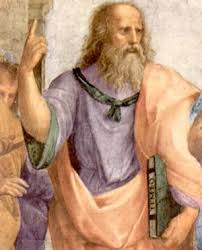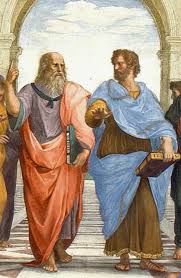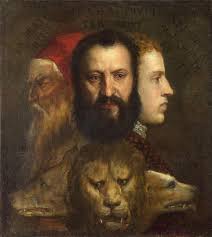Republic: between ideal and pragmatism. Two methods
and two persons
The book of Plato the Republic is a result very interesting because
beyond the ideal considerations, that are utopian; interest is in speculative
rationality of Socrates and Platonic ideal; in fact during read of this book we
can ascertain that this book is divided between ideal consideration and very
speculative analysis, that is alone Socratic, this is from a philosopher that
has been logic and rational in every days. He said about custodian that they
must be honest and strong, they must exercise with armies and gymnastic, they
must bear sorrow and toil and flatters. The utopian think began with follow
words: “First nobody can have a good, if it is staple, second nobody can have a
house or warehouse to let access to everybody, the staple they have from
community, as salary…”; after a description of a strategy to war, and some
particular, human typically Plato seems forgives it, a chief said to other
chief in the city allied: “We not use gold or silver, because it are forbidden,
o contrary you use it. If you want ally to us, you are going to have gold of
enemies city”, human character and peculiarity is that mankind has in his wit
and in his will owner of gold and silver and others richness, therefore it is
almost impossible that a man want die to his city and he refuses gold. I think
that size of this book very imaginative is a step that Plato used to build his
ideal state, imaginative to his time, this is administration of policy from
women, in fact he said, regard commission to exam of sons: “the commissions can
be mixt, because responsibility of state are equal to men and women…”, this is
a very important step to his emancipation of female sex, but it is alone ideal
think. Second step very imaginative is common richness and abolition of
possessive adjective mine and your; al is common, he said: “Therefore we must
be agree also regard that we have said, this is that they don’t have house or
land and richness, but they are going to receive by other staple to
compensation their work of defense…”, it is simply absurd; and much centuries
after this bull ships, a Italian historical man, Francesco Guicciardini, in his
more famous book, History of Italy, mentioned the particular, that is
personal interest to his owner, because alone so a city can be defended, and
chief can use this suggestion and interest to use defense and conquer other
richness.; Guicciardini sees his time and habit of his inhabitant, Plato fly on
cloud and very sorrow that this fly to make also Socrates, that while was died,
fortunately, because I think that he could fire before Plato and after the
Republic. It isn’t political think but alone bull ship necessary to keep this
imaginary city-state. We must consider that this book is written by Plato and
has two natures, one the rational pragmatism of Socrates, and second is fantasy
of Plato; the first sees reality and mankind, and the second has alone fantasy
and ideal imagine of Plato, that is imaginative. The last consideration, if
this model of city is perfect to defense and life of inhabitant, why nothing
cities of ancient Greek has used? It book he has written between 380b.Ch and
370 b.Ch, thereupon Athens could have adopted this model; in fact some step
after he has written: “…The our think was not demonstrate that these models are
workable, but to consider these models to felicity and his contrary, so to
understand the proximity these exemplars…”, therefore this book is a model and
criterion to education of man, thereupon it is absolutely abstract.
Alessandro Lusana
















.jfif)